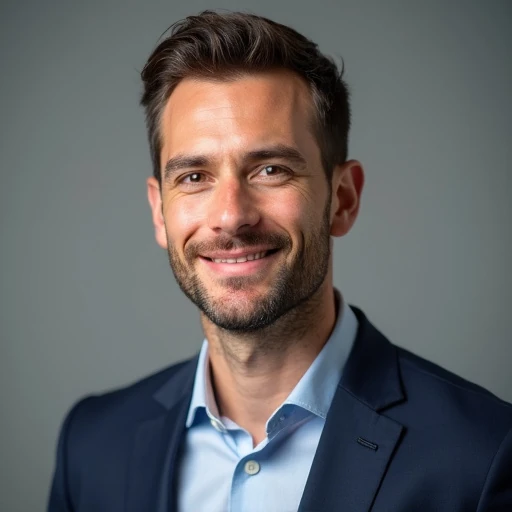Business leaders from across the Liverpool City Region have highlighted the city's unique, people-centric approach as the driving force behind its growing technology and innovation sector. During a recent roundtable discussion, experts from healthcare, cybersecurity, and hospitality shared insights on how local talent and a collaborative culture are transforming technological advancements into global success stories.
The consensus from the 'Liverpool Ones to Watch' event was clear: while artificial intelligence and digital tools are essential, it is the region's inherent creativity and focus on human experience that sets it apart, creating a fertile ground for new ideas to flourish.
Key Takeaways
- Liverpool's innovation landscape is defined by its creative culture, which helps new concepts gain traction.
- AI-driven software developed in the city is improving healthcare efficiency and patient outcomes globally.
- Cybersecurity experts warn that digital threats are a matter of 'when, not if' for local businesses.
- Companies in leisure and hospitality are carefully balancing technology with the need for genuine human interaction.
- There is a strong call to ensure the economic value generated by local innovation benefits the Liverpool region directly.
The Human Element in a Digital World
At the core of the discussion was the idea that Liverpool’s culture provides a unique advantage. Alex Cousins of Animates noted that the city's spirit of inventiveness is crucial for his business, which combines traditional media with new concepts.
"It's about the inventiveness and creativity which exists in Liverpool," Cousins explained. "Our business is not just about the books, and when I explain it to people here, they get it. If I go somewhere else, quite often, they don't."
He described a strategy of perfecting his model in Liverpool's receptive environment before expanding. "As soon as they see what's happening, they go, 'I get it now'. Setting up here offers that ability to be inventive and creative, and people get onto new concepts easier," he added.
Balancing Tech and Touch in Hospitality
This human-first philosophy extends to the hospitality sector. Dan Gillbanks, co-founder of Roadtrip Hospitality, detailed a deliberate strategy to prioritize personal connection over digital convenience at venues like PINS.
"We don’t really use QR codes. Generally, we prefer customers to experience human interaction with the team because we put so much effort into that," Gillbanks stated. He revealed plans for a 'Games Academy' to train staff to engage with customers on a deeper level, offering tips and enhancing their experience.
However, technology is still used to create fun. "We’ve got big jumbotron screens, so we put a kiss cam in. We also do things like taking photos of customers and comparing them to celebrities on the screen. It’s about making the experience fun," he said.
Transforming Key Sectors with Technology
Liverpool's innovators are applying technology to solve critical problems in various fields, from healthcare to cybersecurity and community sports.
AI in Healthcare: A Clinician-Led Revolution
MyCardium AI is a prime example of industry-specific innovation. Katrina Zaman, Head of Brand and Strategic Marketing, explained how the company's software was born from a direct need identified by medical professionals.
"They thought: 'The current software isn't very good. There are lots of gaps in it. How do we fix that? Let's create our own software'," Zaman said. This clinician-led design has built credibility and trust, allowing the company to expand from a research lab into a global software provider.
The impact is significant. "It's giving clinicians back time in the clinic to spend with their patients. It's improving patient outcomes and helping people save lives," she confirmed.
The Inevitability of Cyber Threats
As businesses become more digital, they also become more vulnerable. Amy Gill, a cybersecurity sales manager at Amicis, delivered a stark warning about the current threat landscape.
"You've got the threat actors and hackers wanting to take advantage, and they're doing it very well," Gill noted. She emphasized the need for proactive defence and robust recovery strategies.
"You have to be vigilant and make sure things are locked down. You need good resilience plans because a lot of the time, it's not a case of if it happens, it's probably when it happens."
Building Communities Through Digital Tools
Technology is also being used to foster inclusivity in sport. Chris Watson, co-founder of Ignite Padel, described how his company uses simple digital platforms to manage its fast-growing community.
"The way we built it is through a WhatsApp community to keep padel inclusive for everybody," Watson said. A tiered system based on player skill levels ensures that games remain competitive and enjoyable for everyone, from beginners to experienced players.
This approach has attracted a diverse player base, with ages ranging from schoolchildren to 65-year-olds.
Fostering Growth and Facing Challenges
While Liverpool presents many opportunities, leaders also acknowledged the hurdles that new and growing businesses face, particularly concerning regulation and retaining economic value within the region.
Navigating the Regulatory Landscape
Ayoub Bensakhria, founder of AI specialist Yoctobe, moved his company from Germany to Liverpool after being impressed by the city's potential during his master's degree studies. He founded the company, which develops software-as-a-medical-device platforms, here in February 2025.
"I developed a real chemistry with Liverpool. I found it promising," he said. However, he identified regulation as a significant challenge. "To navigate that, we are exploring all options, including finding a reliable, trustworthy partner in the UK to offer this regulation package, because we know it's very important."
Keeping Value Local
Andrew Borland, Chief Innovation Officer at the University of Liverpool, provided a strategic overview. He pointed out the dual nature of AI, which has the potential to displace jobs in sectors like administration and healthcare while also creating immense value.
The key challenge, he argued, is ensuring that this value benefits the local economy. "The trick is to make it work for the economy," Borland stated. "A lot of the big tech companies monopolise territory... and everybody's data just sucks value out of the economy. That's where Liverpool can excel."
He concluded with a call for coordinated action. "We need a lot more government policy and university thinking. You've got bright people, infrastructure, hardware, but local businesses need to capture the value and not just generate it to sell to the biggest player." This sentiment underscored the roundtable's central theme: with the right support, Liverpool's human-powered innovation can drive its future prosperity.


